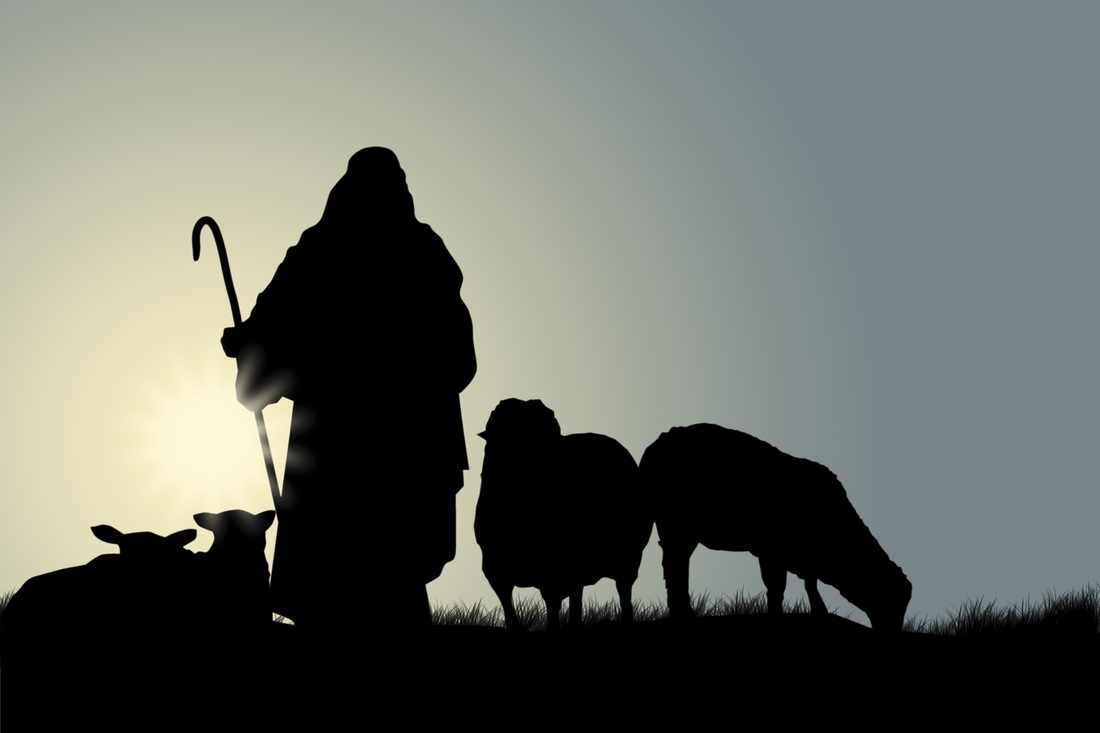
I wish you Easter blessings on this the Third Sunday of Easter! As we pass through the Sundays of Eastertide, our Scriptures continue to focus on the post-Resurrection appearances of Jesus. Today we have three of them: one to Paul on the Road to Damascus(Acts of the Apostles 9:1-20), one to “myriads of myriads, and thousands of thousands” around the throne of God as previewed by John in his vision on Patmos (Revelation 5:11-14), and one to 7 disciples who had gone fishing with rather little success (John 21:1-19). They may have become a bit rusty at their craft, having mostly abandoned it for their three-year sojourn with Jesus. Yet it seems remarkable that these fishing professionals would have had such a dismal outing and almost equally remarkable that they would accept advice from some unidentified Person standing on the shore Who somewhat condescendingly addresses them as “children” and suggests from a football field’s distance away that they try moving their net to the other side of the boat. I would have expected Peter to say some first-century Aramaic equivalent of “yeah, sure.”
But perhaps in the spirit of “nothing ventured, nothing gained,” they give it a shot and end up with an astonishing result. John is the first to speak up, recognizing that a miracle has taken place and that there is only one possible identity for the Stranger on the shore. There is a lot to absorb in this remarkable story, and our focus is almost always on the part that is yet to come: the exchanges between Jesus and Peter. But have you ever given much thought to the fact that John tells us there were exactly 153 large fish in the net?
The amount of detail in this account is not insignificant. It is a vivid account from an eye-witness who shared the entire experience and recorded it decades later with a certainty and confidence that leaves little room for doubt. These disciples are face-to-face with the risen Lord for the third time, twice in the Upper Room in Jerusalem and now on the shore of the Galilean lake. John is only counting the appearances to a larger group of disciples, not also the ones to Mary Magdalene and the other Mary or to the two disciples going to Emmaus. He tells us exactly how many fish were caught and that Jesus, having already started a charcoal fire, had been cooking fish and preparing breakfast for His disciples. He recalls the very words that were spoken and even mentions Peter’s leaping into the sea. He remembers that contrary to expectations, the net had not been torn from this amazing catch of large fish. His thoroughness in recounting the details bears further testimony to his having seen the risen Christ on this occasion which, for him personally, was indeed the third one.
As much as we would love to know more about the resurrection body of Jesus, we know that it had substance, corporeality, and that He could eat with His disciples and invite them to touch Him. He did so in the Upper Room in Jerusalem and now He is eating with them again in Galilee. What did He look like? Was it so different from before that those who knew Him best had trouble recognizing Him, or was it just that on each appearance to them ”their eyes were prevented from recognizing Him,” as we are told was the case with the disciples on the road to Emmaus? We do not have that answer. Obviously we know that He was able to appear unexpectedly without opening a door. But He was no phantom. Luke, in his introduction to the Book of Acts, writes that He “presented himself alive to the apostles by many proofs after he had suffered, appearing to them during forty days and speaking about the kingdom of God.”
There may have been a great deal of doubt and even unbelief at first; but by this time the disciples were fully convinced that they were encountering the Lord Who, having surrendered His life on the Cross, was now risen from the grave and communing with them. What an absolutely amazing experience, on top of all the other amazing experiences they had shared with Jesus Christ, God incarnate. And soon they were to witness His ascension into heaven, though not before they received His commandment to go into the world making additional disciples and baptizing them in the Name of the Father, and of the Son and of the Holy Spirit.
Now we come to Peter. He was among those who heard the Great Commission and obeyed it, even to his own death on a cross which Jesus predicts at this breakfast gathering. But first it was time for him to patch up his relationship with the Jesus Whom he had denied three times at the trials. There are so many ways to view this exchange between Peter and Jesus, and no doubt every imaginable spin has been given to it. Personally, I see it as an amazing demonstration of the grace of Jesus showered on all who turn to Him, even if they don’t always get it quite right. Peter failed in a very intense time of testing. He went out and wept bitterly. Three times he said, “I know not the man,” “I am not one of His disciples,” and “I don’t know what you are talking about.” Perhaps he said it three slightly different ways. In any case, Jesus now asks Peter, the repentant Peter, if he loves Him. He asks him three times. And three times Peter declares Jesus’ knowledge of him, indeed, of all things, and affirms that Jesus knows of Peter’s love for Him. And three times, with slight variation, Jesus responds, “Tend My lambs,” “Shepherd My sheep” and “Tend My sheep.”
Of course Jesus would have been speaking to Peter in Aramaic, and we have no way of knowing what His exact words were. It seems reasonable to assume that the variations mean absolutely nothing despite many a preacher’s valiant efforts to attach some significance to them. What definitely seems significant is that Jesus gives Peter three opportunities to state his love for Him, if only to counterbalance the threefold denial. And the threefold iteration of “tend My sheep” is simply the way that Jesus personalized the command He gives to all His disciples to make more disciples and baptize new believers. Just moments later Jesus says to Peter simply “Follow Me.”
There is of course another level of meaning to Jesus’ words. Tending and shepherding suggest an even deeper level of commitment to serving others in Jesus Name than simply to be getting the sheep into the fold and moving on. Feeding and tending require a greater presence, a greater openness, a greater readiness to do whatever is needed to provide nurture and care. Making disciples takes time. This is of far more importance than splitting hairs over the nuances of tending vs. shepherding, or of distinguishing between sheep and lambs.
I do not believe that feeding and tending sheep is a spiritual discipline that is expected only of clergypersons or evangelists or missionaries. I believe that Jesus calls every single one of us to put our love to the test in exactly the same ways He called Peter to do the same. That is the context here: not whether one is a missionary or a clergyperson, but whether one loves Jesus Christ with all one’s heart and soul and mind, and translates that love into action so that our hearts of love distinguish us from others. This is what Jesus was asking of Peter. This is what He asks of us, each and every one of us. We cannot imagine that we are exempt from living lives that declare our identification with the boundless love of Christ, Who gave His very life for us. Yes, we too are commanded to follow Him, and to love our neighbors as ourselves.
Just this past Thursday Pope Francis met in Rome with representatives from the worldwide Methodist Church. He began by saying, “We come together united in the faith that Jesus is Lord and that God has raised Him from the dead. This baptismal faith makes us truly brothers and sisters.” He ended by saying, “In today’s world, afflicted by so much evil, it is more than ever vital that as Christians we offer a joint witness inspired by the light of Easter, becoming a sign of the love of God, which in the resurrection of Jesus is victorious. May this love also, through our humble and courageous service, reach the hearts and lives of our many brothers and sisters who are looking for such love even without knowing it.” In that context, the love of Jesus that we are to share with others knows no labels and cannot begin to distinguish between “Catholic” and “Methodist.”
Our Lenten observances are now over, whether we succeeded brilliantly or failed miserably in keeping them. Now it’s time for us to live into our Easter faith by sharing the love of Jesus Christ wherever we go, with all of those with whom we come in contact, in the ways that we serve God by serving others, in the spirit in which we do every task God sets before us, however mundane or menial. If each of us were to do this faithfully, the results would be nothing short of spectacular. This is our “takeaway” from today’s Gospel. Yes, it is about Peter and his personal reclamation. But the same Jesus Christ, risen from the dead, Who spoke to Peter on the shore of the Sea of Galilee, speaks the very same words to you and to me today: “Tend My lambs,” “Shepherd My sheep,” “Tend My sheep,” Follow Me.”
In the Name of the Father and of the Son and of the Holy Spirit, Amen

 RSS Feed
RSS Feed


